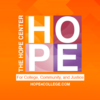May 8, 2023
Across the country, partisan legislators have introduced legislation to ban diversity, equity, and inclusion (DEI) efforts in higher education. These attacks have a devastating impact on students, faculty, and staff. The legislation attempts to undermine steps by colleges to create a welcoming campus environment; recruit and retain faculty, students, and staff that represent their communities; evaluate and address gaps in student success; increase college attainment and post-graduation success; and combat bias and discrimination on campuses throughout the country.
Efforts to make colleges and universities more diverse, equitable, and inclusive are essential for the full promise of higher education. Centuries of racist and exclusionary policies continue to intentionally harm Black, Indigenous, Latine, and other structurally marginalized students. These policies, such as segregation and the intentional underfunding of institutions like Historically Black Colleges and Universities (HBCUs) and tribal colleges, contribute to yawning racial wealth gaps. Colleges cannot properly support or educate these students without creating programs designed to acknowledge and address these historical—and still very much present—inequities.
Legislative attacks on DEI efforts in higher education are racist, homophobic, transphobic, xenophobic, ableist, and white supremacist attempts to prevent state residents from accessing and succeeding in higher education. Most college students in states like Texas and Florida, where such legislation is being proposed, are students of color who face unjust structural barriers that lead to inequitable experiences in college. According to The Hope Center’s Student Basic Needs Survey, 70% or more of Black and Indigenous students experience basic needs insecurity, compared to 54% of White students—including lack of access to adequate housing, food, health care, child care, internet connectivity, transportation, and mental health services. A higher proportion of LGBTQ+ students also experience basic needs insecurity compared to cisgender heterosexual students. To limit efforts to identify and address inequities in student experiences and outcomes is to intentionally exclude many state residents from pursuing and succeeding in college, and by doing so, intentionally hinder their chances at upward mobility.


